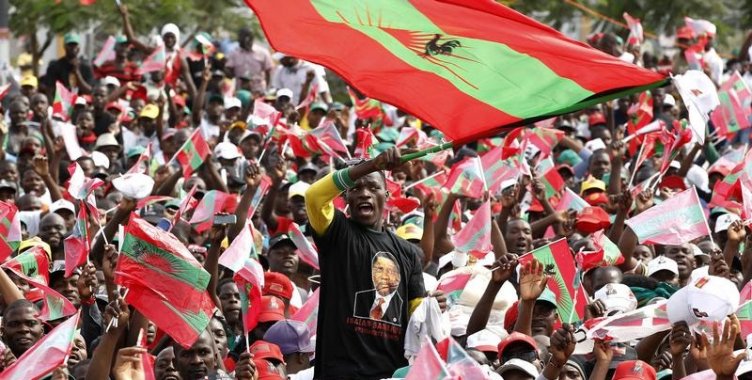The position was expressed at a press conference, by the National Secretary of Former Combatants and Veterans of the Homeland of the National Union for the Total Independence of Angola (UNITA), Abílio Kamalata Numa, regarding the 23rd of March, celebrated in Angola as the Day of the Liberation of Southern Africa.
Abílio Kamalata Numa said that the objective of the conference was "to continue to restore truths about the so-called Battle of Cuito Cuanavale", which took place in Angola between 15 November 1987 and 23 March 1988, opposing the armies of the Popular Armed Forces for the Liberation of Angola (FAPLA), the Angolan Government, supported by Cuba, and the Armed Forces for the Liberation of Angola (FALA), of UNITA, with support from South Africa.
According to the UNITA leader, the Battle of Cuito Cuanavale "is a fiction, because the real battle of 1987/88 was the Battle Let's Salute the Second Congress by the Government of Angola and Lomba 87 by UNITA", which was "one of several battles that took place in that theatre of war".
"The greatness of this battle resided in the political consequences that it produced when it allowed the unblocking of the application of resolution 435 of 1978, with the New York Agreement signed on 22 December 1988 at the UN headquarters by the Governments of Angola, Cuba and South Africa", said Abílio Kamalata Numa.
According to Abílio Kamalata Numa, "it was the Battle Lomba 87 that discouraged Russia and Cuba from expanding communism in Southern Africa and not the so-called Battle of Cuito Cuanavale, which serves to mask the shame of the defeat by FALA to the Russian-Cuban imperialism".
The National Secretary for Former Combatants and Veterans of the Homeland of UNITA explained that the Battle Lomba 87 began on 12 July 1987 and culminated in the destruction of the 47th brigade on 11 October 1987 "and with deep wear and tear of other brigades", and on the following day the FALA began "a ferocious pursuit of the morally wounded Cuban brigades and forces, pushing them to the vicinity of Cuito Cuanavale".
Abílio Kamalata Numa stressed that it was with the defeat of the FAPLA, the Cubans and the Russians in Mavinga in 1987/88 that the signing of the New York Accords was accelerated and that "the will to impose communist regimes in southern Africa was broken", leading "the Russians to impose on the MPLA the strategy of a graceful exit from this theatre of war in Africa, with the architecture of the so-called Battle of Cuito Cuanavale".
For Abílio Kamalata Numa, if it had not been for the invasion of Angola by the Russians and Cubans in 1975, and if the Alvor agreements had been implemented as planned, "the independence of Namibia would have happened much sooner.
"This was also another deception of the Russian-Cuban intervention, with help from Portugal to Angola, with the consequence that the Angolans were paying war debts they did not order from the Russians, Cubans and Portuguese, adding to the transformation of Portugal as the home of most of the money stolen from Angola's public treasury," he said.
The 23rd of March was institutionalised as a holiday in Angola in 2018 by the government, which also proposed in the same year, as president of the Southern African Development Community (SADC), that the date should be a regional holiday, to commemorate Southern African Liberation Day.
The government justifies that the end of the Battle of Cuito Cuanavale led to peace in the country and opened doors to the end of the racial segregationist regime ('apartheid') that was in place in South Africa.







